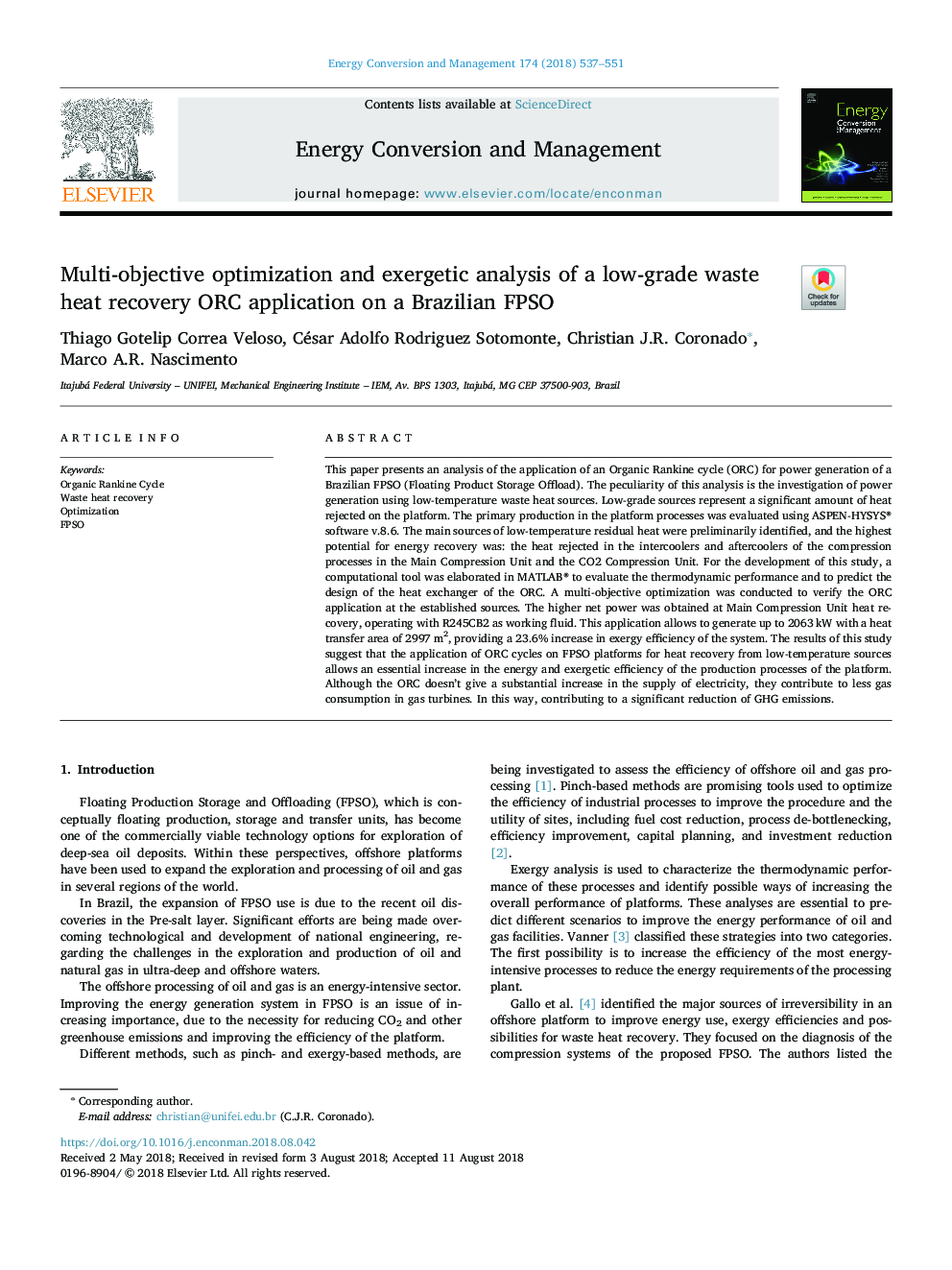| کد مقاله | کد نشریه | سال انتشار | مقاله انگلیسی | نسخه تمام متن |
|---|---|---|---|---|
| 11003796 | 1462788 | 2018 | 15 صفحه PDF | دانلود رایگان |
عنوان انگلیسی مقاله ISI
Multi-objective optimization and exergetic analysis of a low-grade waste heat recovery ORC application on a Brazilian FPSO
دانلود مقاله + سفارش ترجمه
دانلود مقاله ISI انگلیسی
رایگان برای ایرانیان
کلمات کلیدی
موضوعات مرتبط
مهندسی و علوم پایه
مهندسی انرژی
انرژی (عمومی)
پیش نمایش صفحه اول مقاله

چکیده انگلیسی
This paper presents an analysis of the application of an Organic Rankine cycle (ORC) for power generation of a Brazilian FPSO (Floating Product Storage Offload). The peculiarity of this analysis is the investigation of power generation using low-temperature waste heat sources. Low-grade sources represent a significant amount of heat rejected on the platform. The primary production in the platform processes was evaluated using ASPEN-HYSYS® software v.8.6. The main sources of low-temperature residual heat were preliminarily identified, and the highest potential for energy recovery was: the heat rejected in the intercoolers and aftercoolers of the compression processes in the Main Compression Unit and the CO2 Compression Unit. For the development of this study, a computational tool was elaborated in MATLAB® to evaluate the thermodynamic performance and to predict the design of the heat exchanger of the ORC. A multi-objective optimization was conducted to verify the ORC application at the established sources. The higher net power was obtained at Main Compression Unit heat recovery, operating with R245CB2 as working fluid. This application allows to generate up to 2063â¯kW with a heat transfer area of 2997â¯m2, providing a 23.6% increase in exergy efficiency of the system. The results of this study suggest that the application of ORC cycles on FPSO platforms for heat recovery from low-temperature sources allows an essential increase in the energy and exergetic efficiency of the production processes of the platform. Although the ORC doesn't give a substantial increase in the supply of electricity, they contribute to less gas consumption in gas turbines. In this way, contributing to a significant reduction of GHG emissions.
ناشر
Database: Elsevier - ScienceDirect (ساینس دایرکت)
Journal: Energy Conversion and Management - Volume 174, 15 October 2018, Pages 537-551
Journal: Energy Conversion and Management - Volume 174, 15 October 2018, Pages 537-551
نویسندگان
Thiago Gotelip Correa Veloso, César Adolfo Rodriguez Sotomonte, Christian J.R. Coronado, Marco A.R. Nascimento,